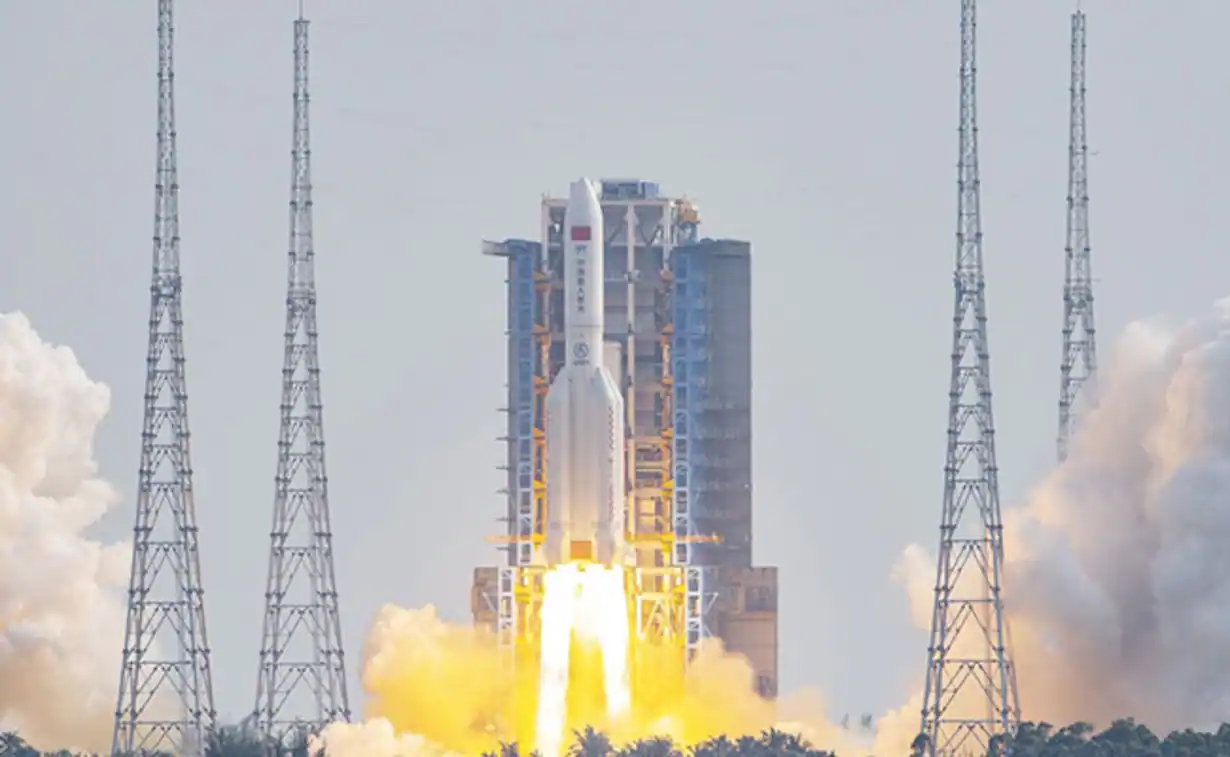Beijing, Oct 31 ABC): China launched the final module of its Tiangong space station on Monday, state media said, the latest step in Beijing’s ambitious space programme. The module named Mengtian, or “dreaming of heavens,” was “launched on a Long March 5B rocket from the Wenchang launch centre” on China’s tropical island Hainan, state broadcaster CCTV reported. Amateur photographers and space enthusiasts watched the launch — which took place at 3:27 pm (0727 GMT) — from a nearby beach.
Mengtian is the third and final major component of the T-shaped Tiangong space station and carries a number of cutting-edge science equipment into orbit, including “the world’s first space-based cold atomic clock system,” state news agency Xinhua reported. “If successful, the cold atomic clocks will form the most precise time and frequency system in space, which should not lose one second in hundreds of millions of years,” Zhang Wei, a researcher at the Chinese Academy of Sciences, told Xinhua.
Beijing plans to launch space telescope Xuntian next year. China has invested heavily in its space programme as it looks to catch up with major spacefaring powers like the United States and Russia. Previous missions have seen Beijing land a rover on Mars and send probes to the Moon. China has been excluded from the International Space Station (ISS) since 2011, when the United States banned NASA from engaging with Beijing. Tiangong, which means “heavenly palace”, will operate for around a decade and host a variety of experiments in near-zero gravity. It is similar to the Soviet-built Mir station that orbited Earth from the 1980s until 2001.

